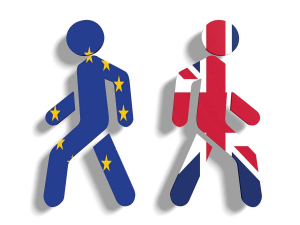NZ Red Meat Outlook 2026: Growth amid trade uncertainty
While things are looking positive for the red meat sector in 2026, volatility in global trade remains a concern, says the Meat Industry Association (MIA).
 Our sheep and beef sector remains concerned about how the Brexit deal has split NZ's WTO quota access for sheepmeat and beef to the UK and Europe.
Our sheep and beef sector remains concerned about how the Brexit deal has split NZ's WTO quota access for sheepmeat and beef to the UK and Europe.
The United Kingdom-European Union agreement – announced late last year –on post-Brexit trade arrangements will deliver certainty.
But New Zealand’s sheep and beef sector remains very concerned over the split of New Zealand’s WTO quota access for sheepmeat and beef.
Beef + Lamb New Zealand welcomed the announcement that the UK and the EU have reached agreement on their future relationship. However, the split quotas would have been a concern regardless of whether the UK left the EU with or without a Brexit deal.
We know this has been a really difficult process for the UK and EU and we acknowledge that some steps are needed before it is formalised. We welcome the certainty the agreement brings in minimising border disruptions, which would have made it more challenging to get our product into the UK market.
However, it’s hugely disappointing that the EU and UK have agreed to a trade deal between them. But they have chosen to compromise New Zealand’s access in the process.
This choice sends completely the wrong signal about their commitment to the global rules-based trading system and to trade liberalisation and leadership.
The New Zealand Government, along with B+LNZ, the New Zealand Meat Board and the Meat Industry Association, have voiced strong objections over the last four years regarding the EU and UK’s decision to split the quotas.
Outside of Brexit, both the EU and UK have said that they want to negotiate ambitious and modern new trade deals with us. The quota split flies in the face of that claim and leaves us on the back foot before we even get to the negotiating table.
The MIA says in addition to raising concerns about the split quota, the industry had been preparing for all Brexit outcomes.
The Brexit process has not been easy and we welcome the certainty of an agreed deal. MIA has been working with B+LNZ, the New Zealand Meat Board and New Zealand Government agencies to minimise any possible disruption for New Zealand exporters.
Our strong concern is that the quota split erodes the quality and quantity of our market access into these high value markets. It represents a major step back from the trade liberalisation positions claimed by both the EU and UK. It also undermines their WTO commitments and their legally binding obligations.
The New Zealand Government must resist this move. It removes our market access rights and ability to respond to commercial opportunities.
Now that Brexit has been resolved, we expect to see the UK and EU taking urgent steps to live up to their word that New Zealand is not left worse off as a result of the Brexit process.
While we understand the UK and EU have been grappling with a range of serious issues, we urge them both to seek to minimise the impact of their choices on a trusted and longstanding trading and political partner.
Sirma Karapeeva is the chief executive of the Meat Industry Association and Sam McIvor is chief executive of Beef+LambNZ
Recent weather events in the Bay of Plenty, Gisborne/Tairawhiti, and Canterbury have been declared a medium-scale adverse event.
DairyNZ's chief executive Campbell Parker says the 2024/25 dairy season reinforces the importance of the dairy sector to New Zealand.
A New Zealand agribusiness helping to turn a long-standing animal welfare and waste issue into a high-value protein stream has won the Australian dairy sector's top innovator award.
OPINION: A bumper season all around.
Dairy Women's Network (DWN) has announced that Taranaki dairy farmer Nicola Bryant will join its Trust Board as an Associate Trustee.
Rural Women New Zealand (RWNZ) says it welcomes the release of a new report into pay equity.

OPINION: A mate of yours truly reckons rural Manawatu families are the latest to suffer under what he calls the…
OPINION: If old Winston Peters thinks building trade relations with new nations, such as India, isn't a necessary investment in…